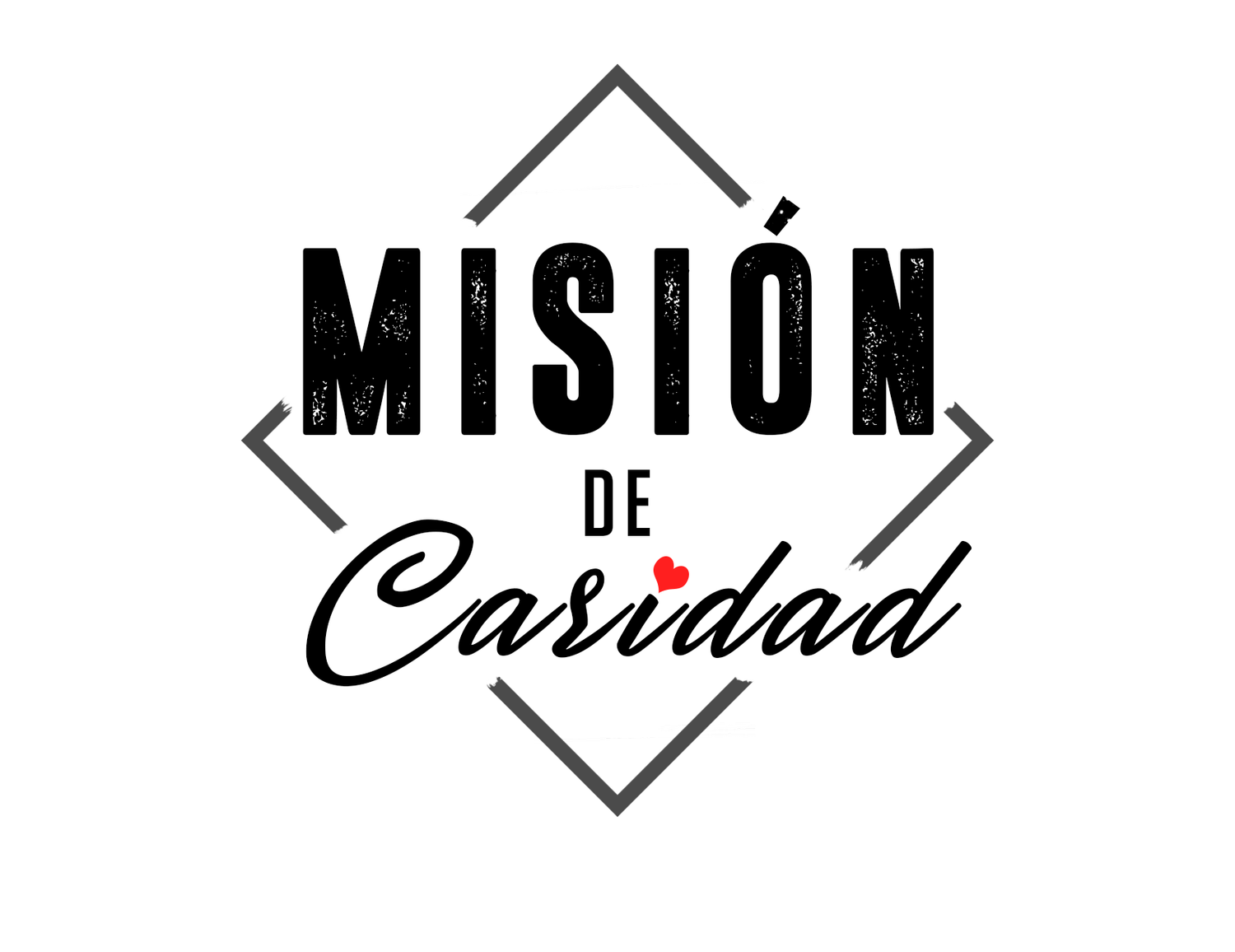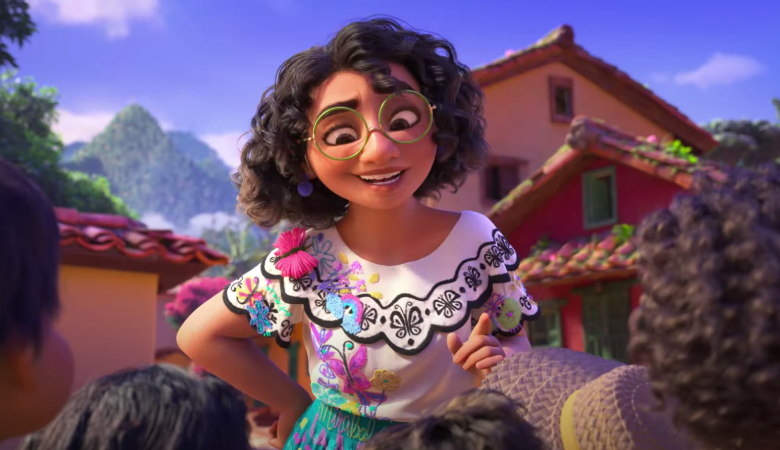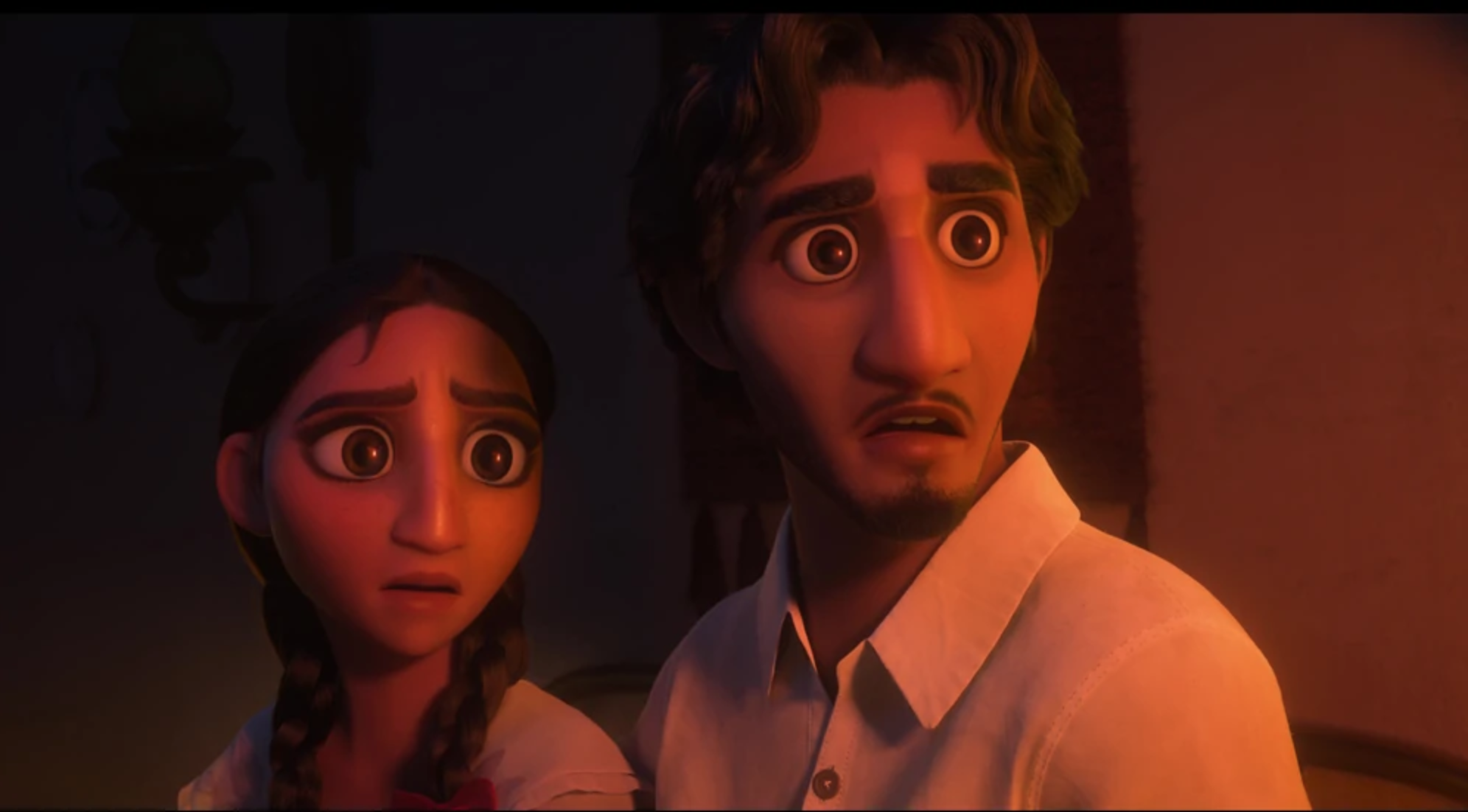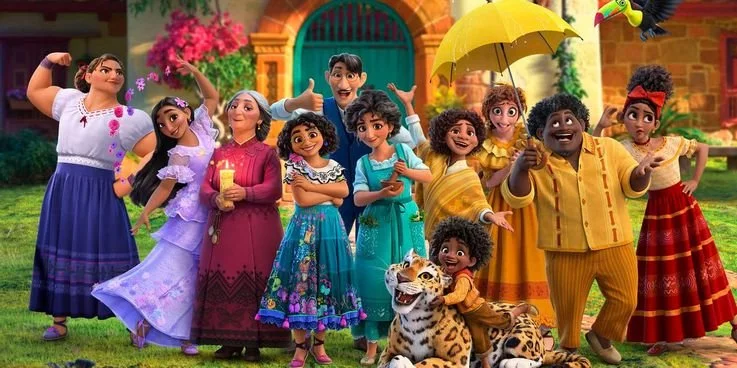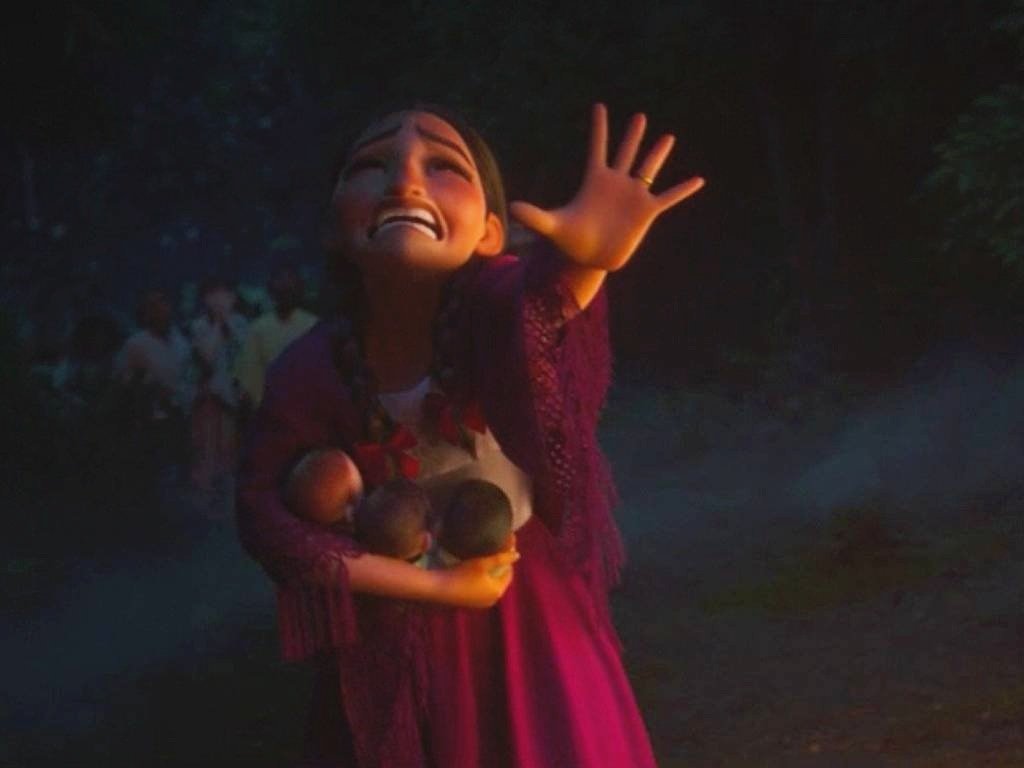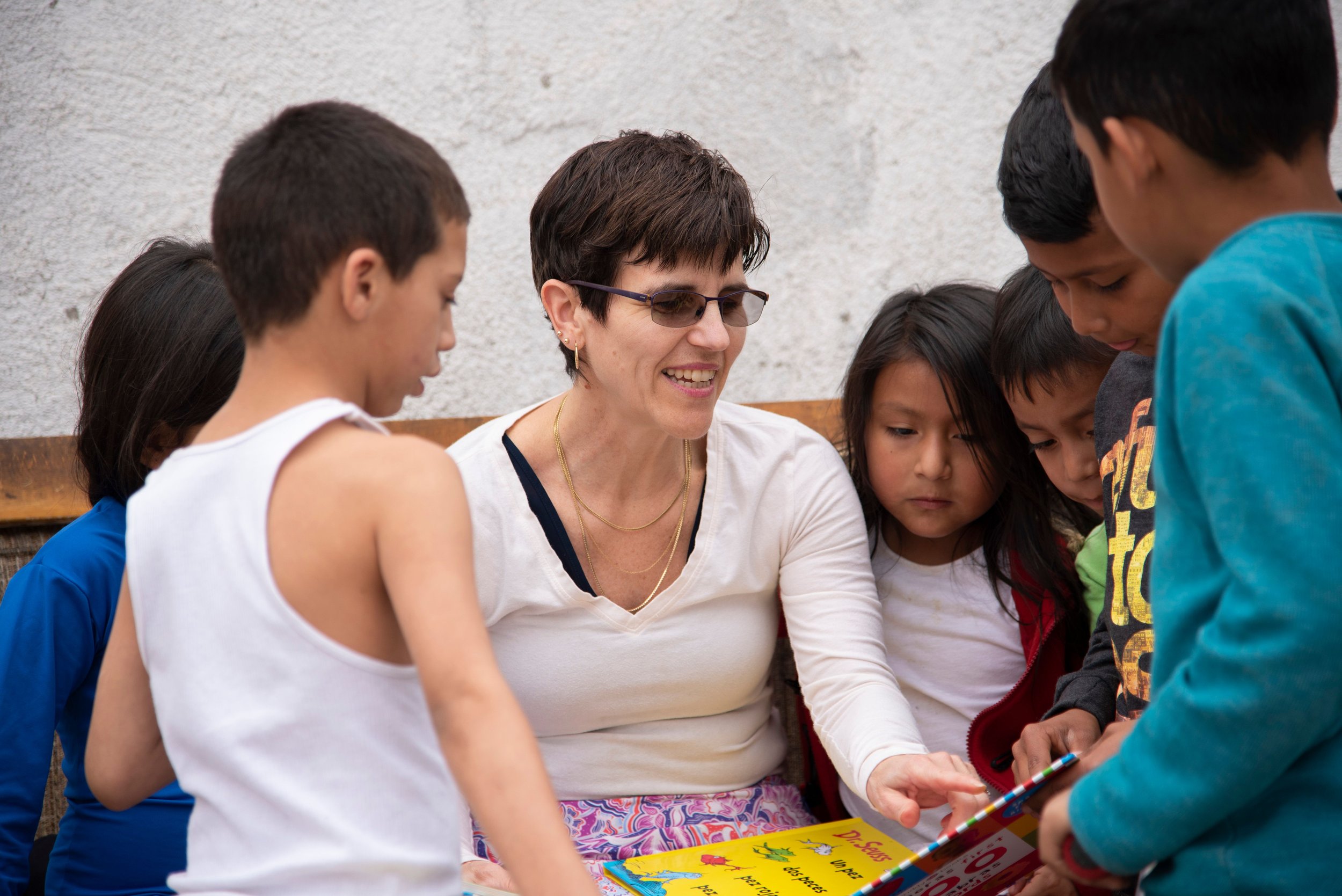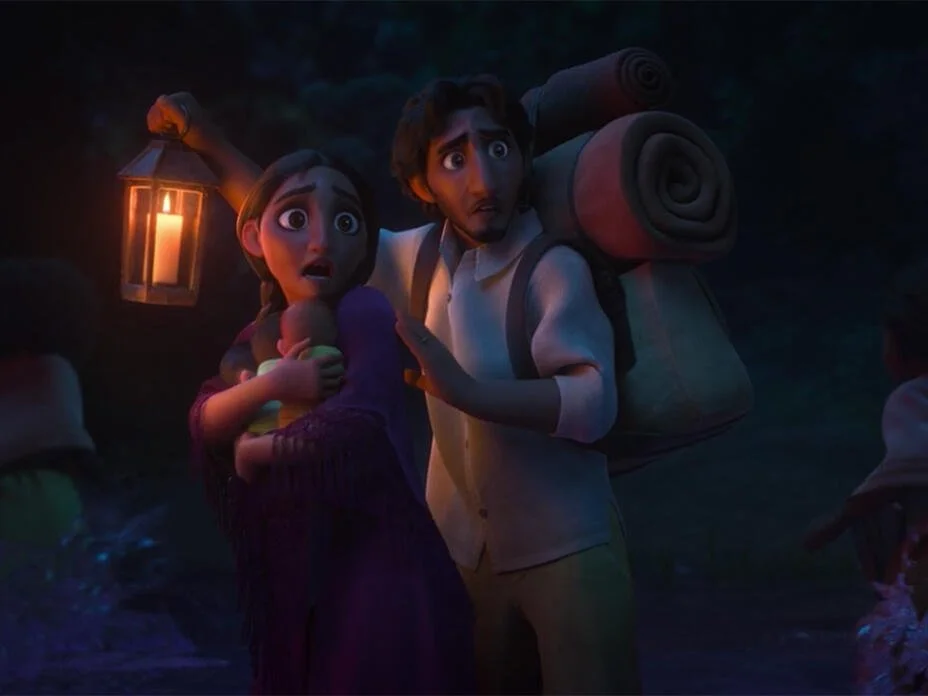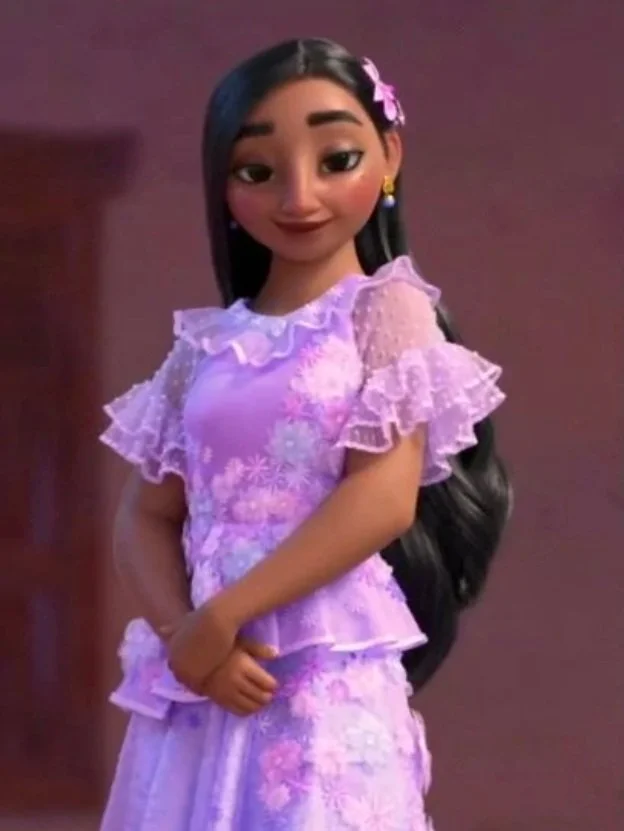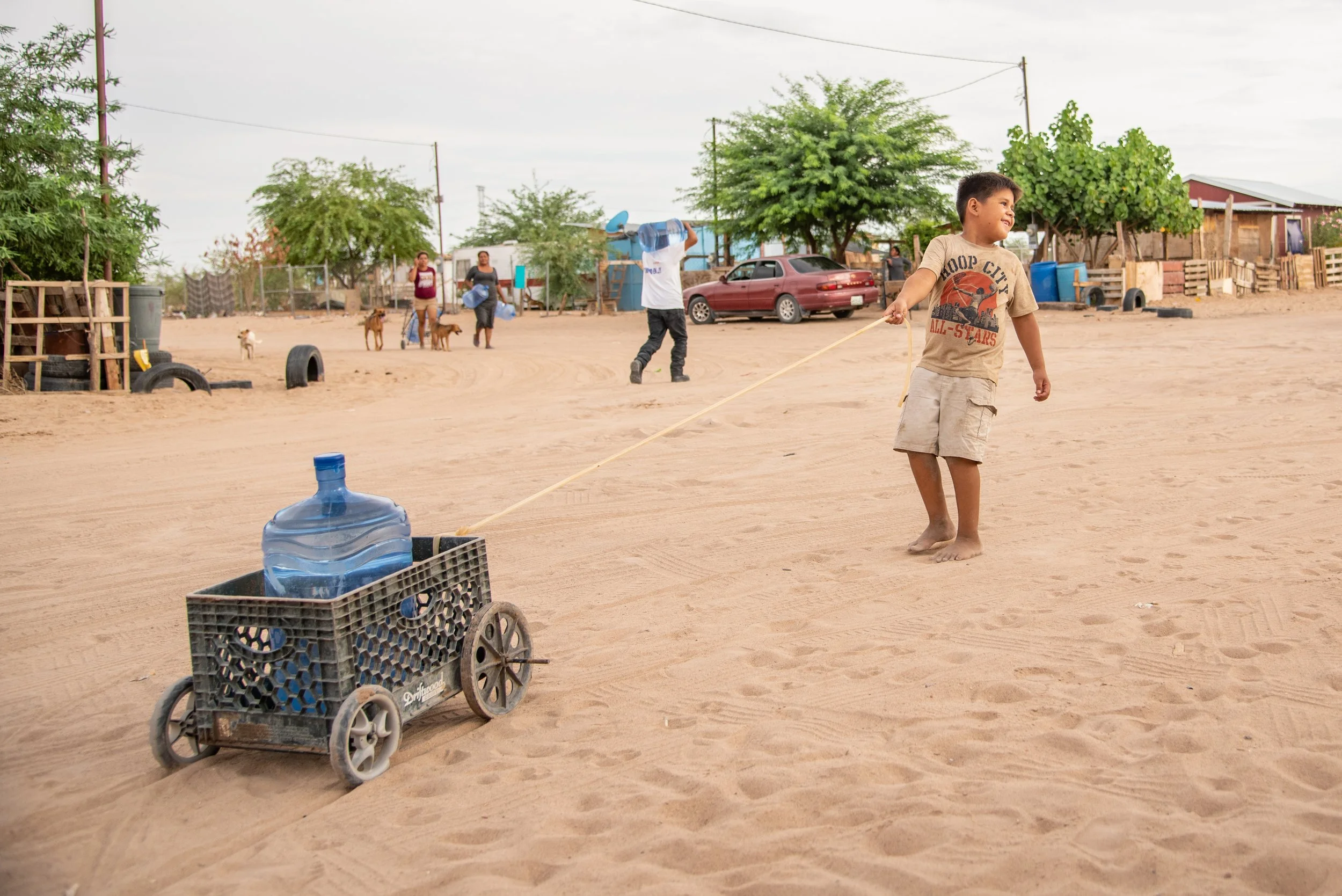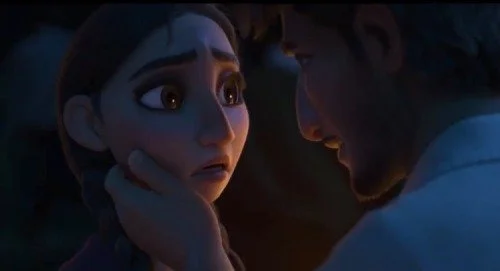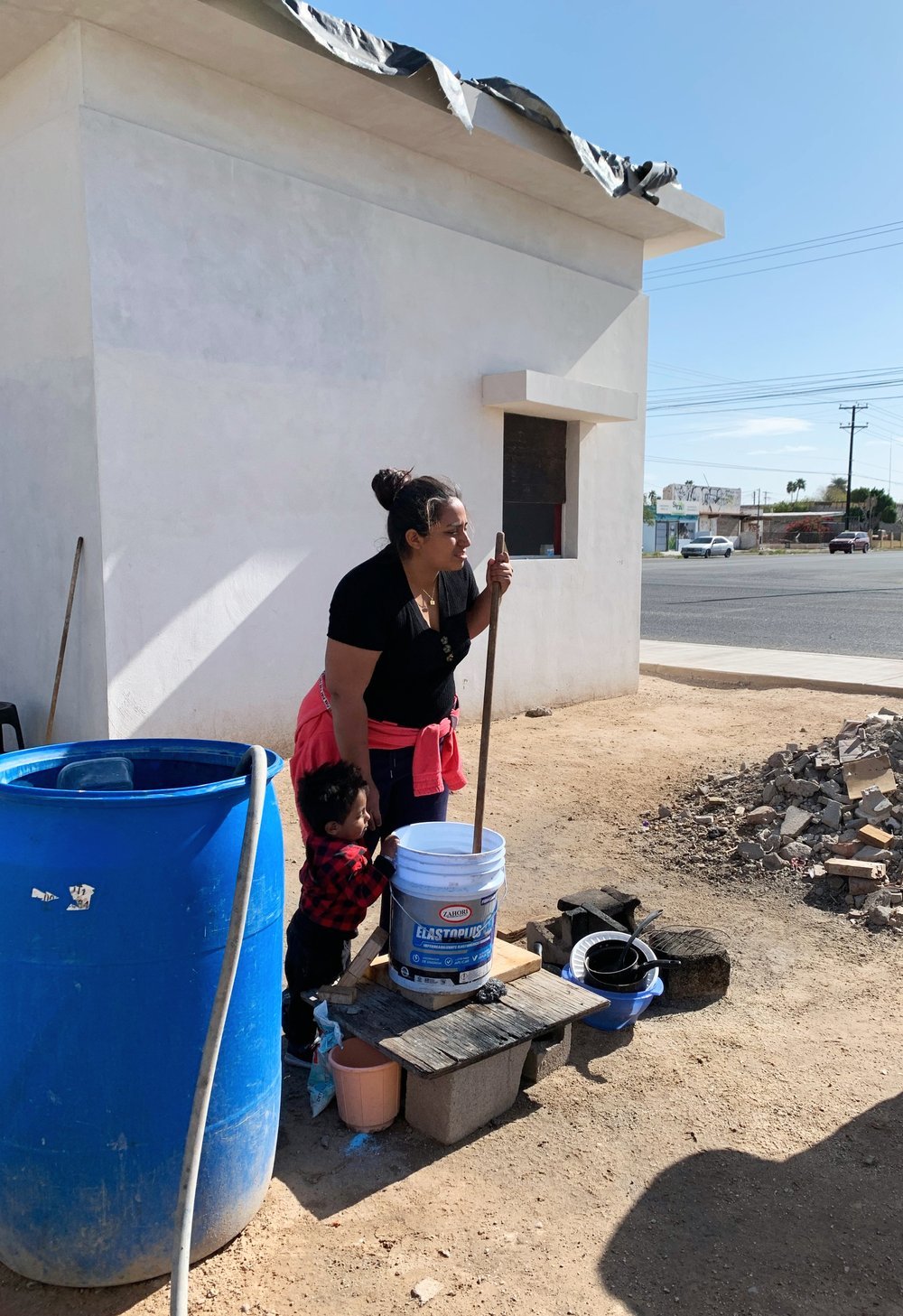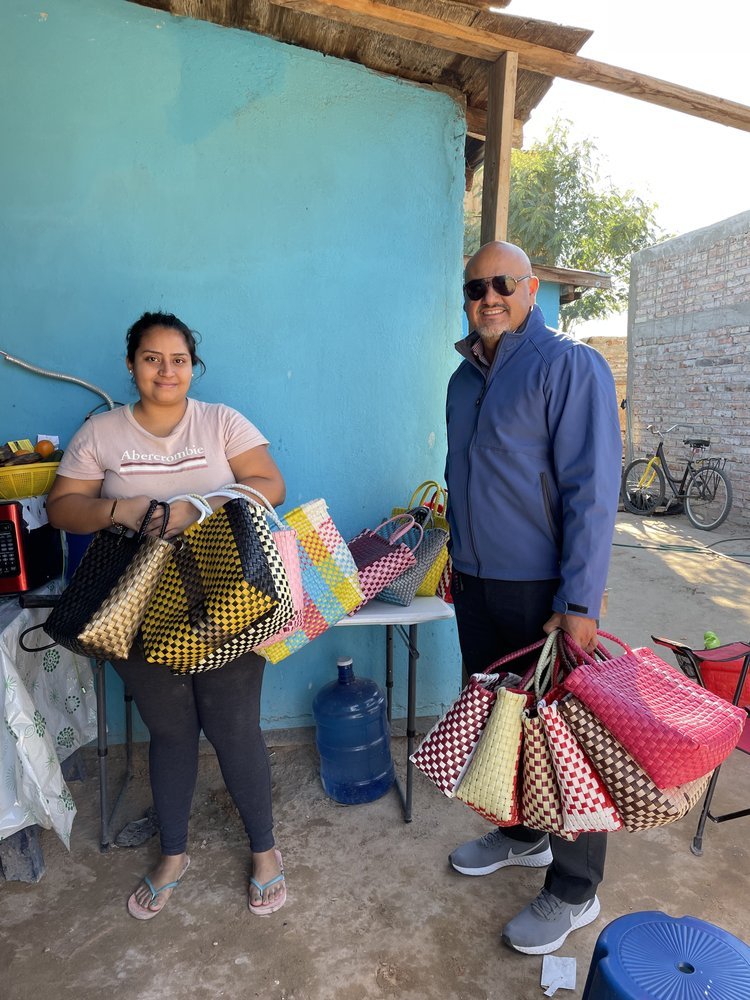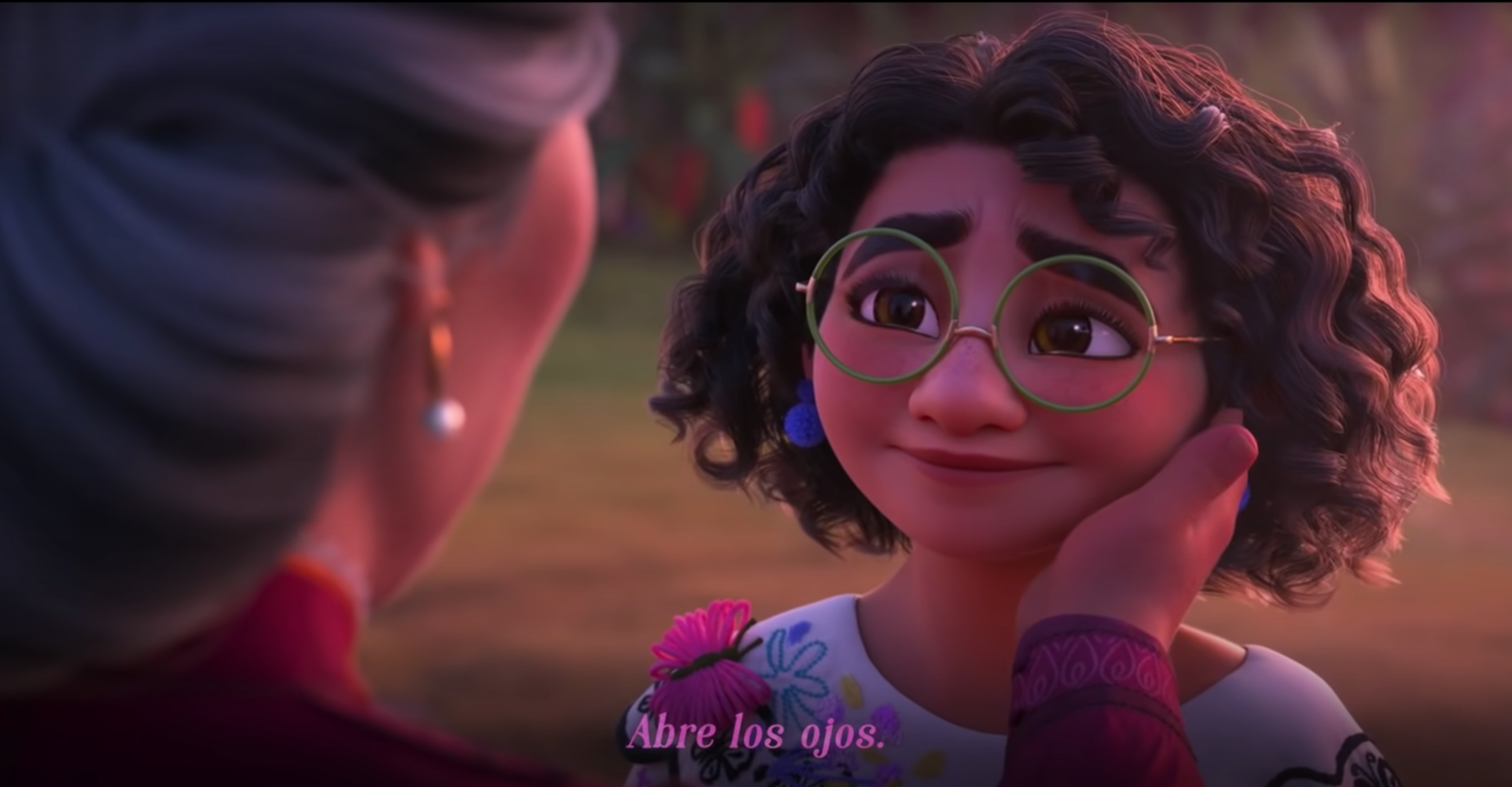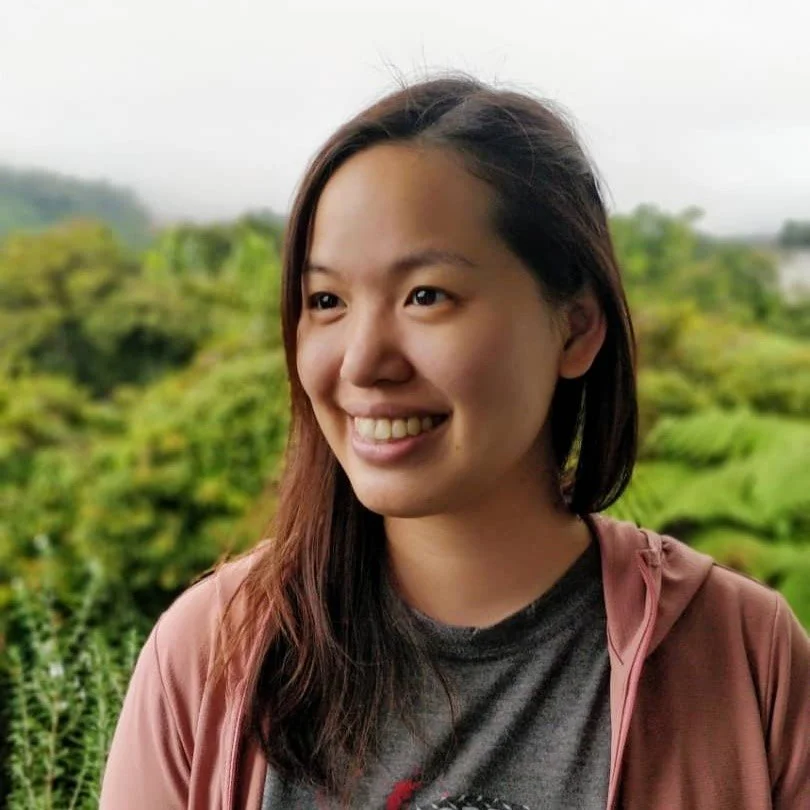8 Ways Encanto Got The Refugee Experience Right
All rights reserved to Walt Disney Animation Studios.
There are many reasons why adults and children alike have fallen in love with Disney’s movie Encanto. First, there’s the catchy songs (Thanks Lin Manuel Miranda!). A main character with glasses and untamed hair (so relatable). A magical gift that involves communicating with animals (how cool is that). And for the first time ever, a story set in beautiful Colombia that is centered around family relationships. Given how unconventional it is to see a South American heroine on the big screen, it is no wonder that immigrant and Latino families around the world have embraced Encanto as a rare representation of their communities.
Another groundbreaking aspect of Encanto is that several important characters are refugees. Early on in the movie, we learn that Mirabel’s grandparents fled their home many years ago because of war. While fleeing, Mirabel’s grandfather was killed, leaving her grandmother, whom Mirabel calls Abuela, a single mother to three children. Although Mirabel’s family appears perfect at the outset, it becomes clear as the plot develops that Abuela’s experience of displacement and loss has had an impact on the entire family.
Curious about how Encanto illustrates the refugee experience? Here’s our guide to watching Encanto through a refugee’s eyes.
1. Family is Everything
In Encanto, everything revolves around family. Family comes first and the bonds go deeper than other kinds of relationships. For many refugee families, this is also true. When life is full of constant change, and friends and community are all temporary pieces of a constantly evolving puzzle, family is all you really have. When family members get separated, as is often the case for refugees, the road back to each other can be long and arduous.
All rights reserved to Walt Disney Animation Studios.
Despite Abuela’s flaws, she clearly treasures her family and wants the best for them. They are all she has left of her old life – the one that was snatched away from her at a young age. The Madrigal family members may have their differences, and sometimes they don’t get along. But they all have a strong love for each other and desire to support each other through thick and thin. Even Bruno, who – as you know - we don’t talk about.
Pro Tip: Asking a refugee about their family, including their extended family, is a good way of showing genuine interest in their lives.
2. Whitewashing the Past
In Encanto’s opening scene, Mirabel’s grandmother tells Mirabel an idyllic account of their family history and how the miracle candle came to be. It skips over some painful details and emphasizes the happy ending - that is, a magical candle whisks the Madrigals away to a safe place and they live happily ever after. This is the version of the story that Mirabel is told as a child – but it is not the only version that exists.
In a key scene, Mirabel’s grandmother recalls the pain of losing her husband while fleeing for their lives.
For many refugee families, it can be normal for uncomfortable parts of history to get ignored or “forgotten”. This is a common effect of coping with traumatic events, and a way of protecting more vulnerable family members (like young children) from having to hold difficult information.
Even when displaced people are no longer in a state of constant flux, they can still feel pressure to “not go into the details” about their past. They are often aware that some parts of their history are too painful for others to hear.
Pro Tip: How can you be a friend to a refugee? Show genuine interest in hearing their story but don’t pressure them to tell you everything you want to know.
3. The Idealism of Resettlement
When I worked for a refugee agency, I met hundreds of people who told me that resettlement was their only hope of for the future. Many refugees get stuck for years in countries where they are barred from work, school, and lawful residence – often becoming illegal immigrants in the process. Their only hope for a better life is to be accepted into a country where they can get citizenship, a process called resettlement.
Resettlement is a long process involving multiple agencies that takes an average of five years according to some studies. In the organization I worked for, we called this process “the pipeline”. Getting into the pipeline isn’t guaranteed for all refugees as resettlement quotas are often reserved for the most vulnerable. Even if a refugee managed to get into the pipeline, their case can get stuck for years due to new refugee crises, government policy changes, bureaucracy, or human error.
Abuela and the miracle candle. All rights reserved to Walt Disney Animation Studios.
When watching Encanto, I was struck by how much the magical candle and the magical house (affectionately called casita, or little house) resembled the idealism surrounding the resettlement process that many refugees dream of. In a flash back scene, we learn that:
In a moment of great desperation, the magical candle removes the Madrigals from immediate danger
It transports them to a new land and creates a barrier protecting them from future threats of harm
It provides them a safe house which meets their every physical need
It is therefore no wonder that Mirabel’s grandmother refers to Encanto as a “paradise”. However, Encanto is not the utopia she makes it out to be. As we see later in the movie, trauma from the past can live on and manifest in unexpected ways.
Watch how “Casita” anticipates and provides for the Madrigal’s needs in the first minute of this video. Who wouldn’t want a house like that? - All rights reserved to Walt Disney Animation Studios.
Pro Tip: The situation of a refugee waiting for resettlement can be similar to an asylum seeker in the USA who is waiting to achieve legal status. Displaced people often find themselves at the wrong side of the law because of situations beyond their control. It can be helpful to see them as refuge-seekers who have been failed by their own governments, rather than illegal immigrants with malicious intent.
4. The Feeling of Being Left Behind
During the scene where Mirabel watches Antonio receive his gift, there are many clues as to how Mirabel is feeling. She attends this coming-of-age ceremony from behind a lattice, essentially standing in the shadows, and watches with longing as the miracle candle bestows on her younger cousin what she should have also received. As the whole family celebrates with a family photo, no one notices that she is not included.
The exclusion is heart-breaking. The FOMO is real.
All rights reserved to Walt Disney Animation Studios.
It is true that resettlement brings many benefits – including naturalization, stability, opportunities for education and work, and upward social mobility. However, the reality is that less than 8% of refugees who are determined to need resettlement ever get resettled. This means that the vast majority of displaced persons live in a state of limbo for the rest of their lives. For many refugees and asylum seekers, displacement can feel like someone hit the pause button on your life. They are waiting on a miracle - whether that be legal status, resettlement, or a scholarship - just so they can resume “normal life”. This feeling of being stuck while life continues on for everyone else can feel isolating – and can lead to depression, frustration and hopelessness.
At Misión de Caridad, we serve displaced families who have decided to resettle on the Mexican side of the USA-Mexico border. Many of these families come from Southern Mexico and Central America, where gang violence and political instability have made life untenable.
Misión de Caridad (MdC) co-founders Jean Sicurella and Francisco Ortega deliver healthy groceries to a family in San Luis Rio Colorado, Mexico. In 2021, MdC delivered enough healthy groceries to prepare over 20,400 meals.
Top: MdC Co-founder Jean Sicurella reads with children living in a shelter on the Mexico side of the U.S. border.
Two children wait to bring home their water at MdC’s water distribution site.
For many of the families we serve, life in Northern Mexico is the “casita” where they are rebuilding their lives. Although their life is relatively safer from where they came from, they still live in extreme poverty without the income and education necessary to provide for their families. Our mission at MdC is to provide opportunities (programs and resources) for women and children to live self-sufficiently free of the fear of persecution, violence and extreme poverty.
Many refugees and asylum seekers continue to cross into the USA in search of their “miracle”. Our hope is that the communities we serve can begin building the life they want for their children. Right now, right where they are.
You can read more about our vision, mission and values here.
5. The Trauma Lives On
Like Abuela, many refugees experience trauma as a result of deeply distressing or disturbing events that overwhelm their ability to cope, causes feelings of helplessness, diminishes their sense of self and their ability to feel a full range of emotions and experiences.
Much has been said about how Encanto illustrates the realities of generational trauma, especially in immigrant and refugee families. This trauma manifests differently in different people. Mirabel’s mother feels responsible to heal everyone, including the townsfolk who line up for her life-saving arepas. Bruno the future-teller is censored and eventually silenced. Then there’s Mirabel’s sisters, Luisa and Isabella, who have buried their individuality in order to take on the roles of “the strong one” and “the model child”. Mirabel, while retaining her spunky persona, feels the immense burden to prove her place in the family.
The main reason for all this dysfunction is Mirabel’s grandmother, who has mythologized the family’s origins and fears that if they do not continue to make themselves useful, they might lose their gifts. At some deeper level, she probably also feels the need to prove that her husband’s sacrifice was worth it.
Luisa, Mirabel’s overworked older sister, is unable to say “no” to tasks because she feels the need to prove her worth by being of service to others.
Picture perfect Isabella agrees to marry a suitor against her will in order to please her Abuela.
Many second generation refugees and immigrants remember being told repeatedly by their elders that they must work hard to justify their parents’ sacrifices. In fact, they often need to be more than successful. They have to be the best so that no one will question their place at the table.
The song that best captures this pressure is the head-bopping “Surface Pressure”. It’s got a sick beat – but it’s also a desperate cry of burnout. Luisa, the strong sister who can shoulder any task, begins to crumble under the weight of impossible expectations. But she tries to ignore her feelings and soldier on for the sake of the family, just like her grandmother once did.
All rights reserved to Walt Disney Animation Studios.
Immigrant communities are often noted for their exemplary work ethic. Studies have shown that refugee and immigrant communities contribute greatly to a receiving country’s economic growth. Yet, they often endure a disproportionate amount of abuse and unfair treatment, due to fear of retribution or deportation.
In countries where refugees have little or no protection, employers can take advantage of their precarious legal status to demand unsafe and/or unpaid labor. The world is full of “Luisa”s who will do the jobs no one else wants to do - because they have no other options.
This boy uses a makeshift milk cart to drag his water home, barefoot, through the sand in over 100 degree weather.
In the border communities served by MdC, the healthy groceries and clean drinking water we provide helps supplement their income so families can spend their meager income (the vast majority earn less than $75 per week) on other necessities, which even with our assistance is not enough.
We know that handouts are just part of the solution. In addition to our grocery and water program, MdC focuses on health, wellness and education programs to address systemic issues that keep family in poverty.
Pro tip: Refugees often have to work jobs that are unrelated to their profession or training because their qualifications are not recognized in their host country. This is not necessarily a reflection of inferior skills but usually a result of laws that are meant to reserve jobs for locals.
6. “I Thought We Would Have A Different Life”
I’ve had the privilege of listening to many refugee accounts in detail. For many of the refugees I’ve met, it was their first time recounting their full history to anyone, and the shock that such terrible things had actually happened to them was sometimes still palpable years later. One thing was always clear - they never expected to be refugees. They never expected to lose their home, their jobs, their families and become strangers in foreign land.
When Mirabel’s grandmother recounts her story, she begins with - “I thought we would have a different life.” As viewers, we then catch a glimpse of the life she had dreamed of – one filled with love and happiness. A future that is then snatched away, never to be returned. The haunting song that follows “Dos Oruguitas” (Two caterpillars) helps us feel the shock experienced by a young Abuela and allows us to grieve with her.
Today, several million Ukrainians are fleeing their homes thinking - “I never thought this would happen to me”. This shock was reflected in Western media coverage that described Ukrainians “civilized”, “so like us” and in need of “neighborly help”. The warm welcome that has been extended to Ukrainians by its European neighbours is a far cry from the hostile reaction received by Syrian refugees fleeing the Syrian Civil War in 2015.
Wouldn’t it be amazing if all refugees could be treated the same way Ukrainians are today? Or is our world so small that we are only shocked when people “so like us” are displaced?
Pro tip: Imagine a world in which you have no way to get a passport. How would you flee your country if you had to?
7. Change is the New Constant
One of the most damaging aspects of the refugee journey is the instability that follows displacement. Although the Madrigals’ journey is short due to the magical candle’s powers, most refugees continue living in transition for a years, if not for the rest of their lives. UNHCR estimates that at the end of 2020, 82.4 million people worldwide had been forcibly displaced. This means that for a huge number of people living on this earth, change is the new constant.
A young Abuela says goodbye to her husband. All rights reserved to Walt Disney Animation Studios.
This sad truth is captured beautifully in the “Two Caterpillars” song, which captures the moment Abuela and her husband are forced to separate. An English translation of the Spanish version reads:
They keep walking and navigating a world
That changes and keeps changing
With new dreams they're already lacking
All you have to do is do what is necessary
In the world that keeps changing
In a new landscape of constant change, personal dreams have to die because survival takes priority. This means giving up hopes for their future - whether that be a career in a certain field, relationships, having children or pursuing one’s studies.
… but it can yield surprising results
At MdC, we have witnessed the resilience of refugees and internally displaced persons in rebuilding their lives. Despite the landscape of uncertainty, some individuals overcome the odds and find ways to rebuild their lives.
Eileen is doing her laundry using a coke bottle on a stick, while caring for her young child near construction debris and a dangerous street.
Eileen is handing Francisco the last bags she made for MdC’s women’s work program.
When we first met Eileen, an IDP from Guerrero, Southern Mexico, she was washing laundry while working as a caretaker for an empty building. Her family owned a restaurant back home but had to flee because the local cartel raised their tax on the restaurant and Eileen’s family was unable to pay.
Eileen is now the face behind our women’s work program, making bags to be sold in the U.S. through MdC. At the end of April, Eileen will spend a month teaching 50 women how to make these beautiful bags, so they too can earn a living.
Eileen is always looking for ways to improve and has the work ethic that immigrants and refugees are known for. She recently received her certificate of completion for secondary school and now plans to complete her high school education at an adult learning center. She hopes to go on to college to study nutrition.
Eileen with a model she built in order to make the bags as part of MdC’s pilot work program
Last but not least… Eileen and her parents have not given up their dream to open a restaurant again, this time in Northern Mexico, selling Southern Mexican cuisine! We are honored to support them in their journey.
Pro tip: One of the best ways to welcome a refugee who is new to your country is to invite them to your home for a meal. People who have been on the move will treasure the simple experience of sharing a meal in someone’s home.
8. The Miracle Is You
When Abuela acknowledges her trauma and Mirabel finally sees into her grandmother’s past, a beautiful journey of healing begins. This healing brings a new home, new gifts, a new kind of relationship between the Madrigals and their community, and of course the return of Bruno! Whom we all get to talk about now.
While a refugee’s journey is undoubtedly filled with many sad moments, there are always opportunities for the human spirit to shine. Refugees have overcome the odds time and again to lead the world with their innovation, creativity, and insight. Here are just a few refugees who have made an impact in this world.
Albert Einstein - Scientist, fled Nazi Germany as a political refugee
Sigmund Freud - Father of modern psychology, fled Nazi Germany as a political refugee
Victor Hugo – Author of Les Misérables and The Hunchback of Notre Dame, who fled political persecution in France.
Bob Marley - Musician, fled political violence in Jamaica
Freddie Mercury – Lead singer of the band Queen, fled with his family from Zanzibar
Alek Wek - Model, Dingka refugee who fled violence in South Sudan as a child
Matreyi Ramakrishnan - Actress, child of Tamil refugees from Sri Lanka
Yusra Mardini - Swimmer, young Syrian refugee who was part of the first ever “Refugee Team” at the Olympics
All rights reserved to Walt Disney Animation Studios.
There is a certain depth and insight that we can all glean from those who have lived on the margins. Nations flourish when they welcome the diversity and resilience that refugees, asylum seekers, IDPs, and anyone else in between… bring to this world.
To every displaced person finding their way, we would like to say “You are a gift to this world!” More than your accomplishments and service, the gift is YOURSELF.
We hope this article helped to “abres to ojos”! The next time you watch Encanto with someone, maybe you can share with them some of these new things you see!
Sources:
How long does it take for refugees to get resettled?
How many refugees eventually get resettled?
The excruciating wait for resettlement
How Encanto explores generational trauma
Encanto and recovering from generational trauma [VIDEO]
Migrants and refugees are good for economies
Why migrants are especially vulnerable to death and injury on the job
Millions of Ukrainians have fled their homes
They are “civilized” and “look like us”: The racist coverage of Ukraine
Eunice Wong is MdC’s blog manager and head story teller (only true stories allowed). She has worked with refugees and other displaced persons since 2015 and currently lives in Iraq.
You can read some of her other articles here:
Why are people fleeing Southern Mexico?
14 songs about the refugee experience to listen to this World Refugee Day
